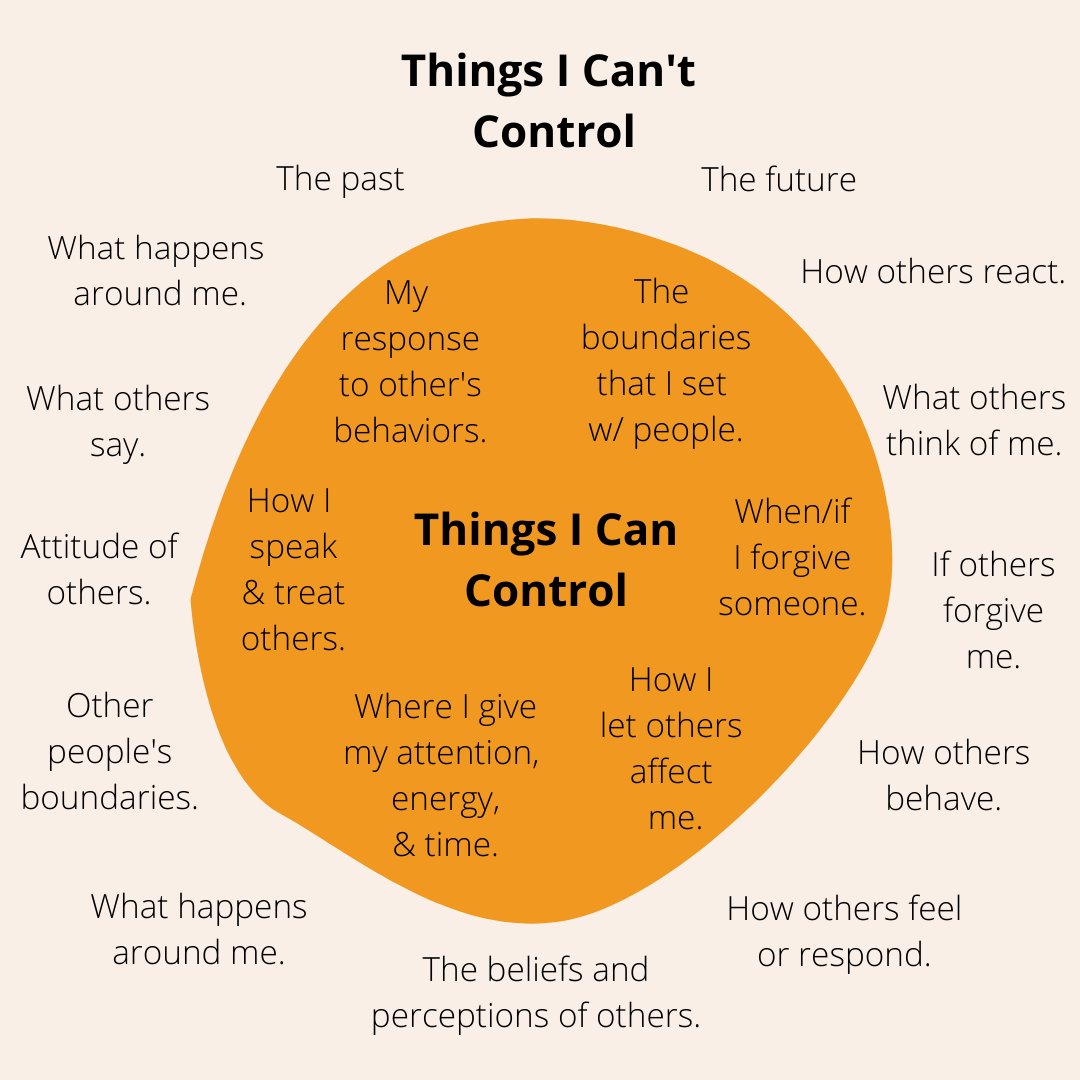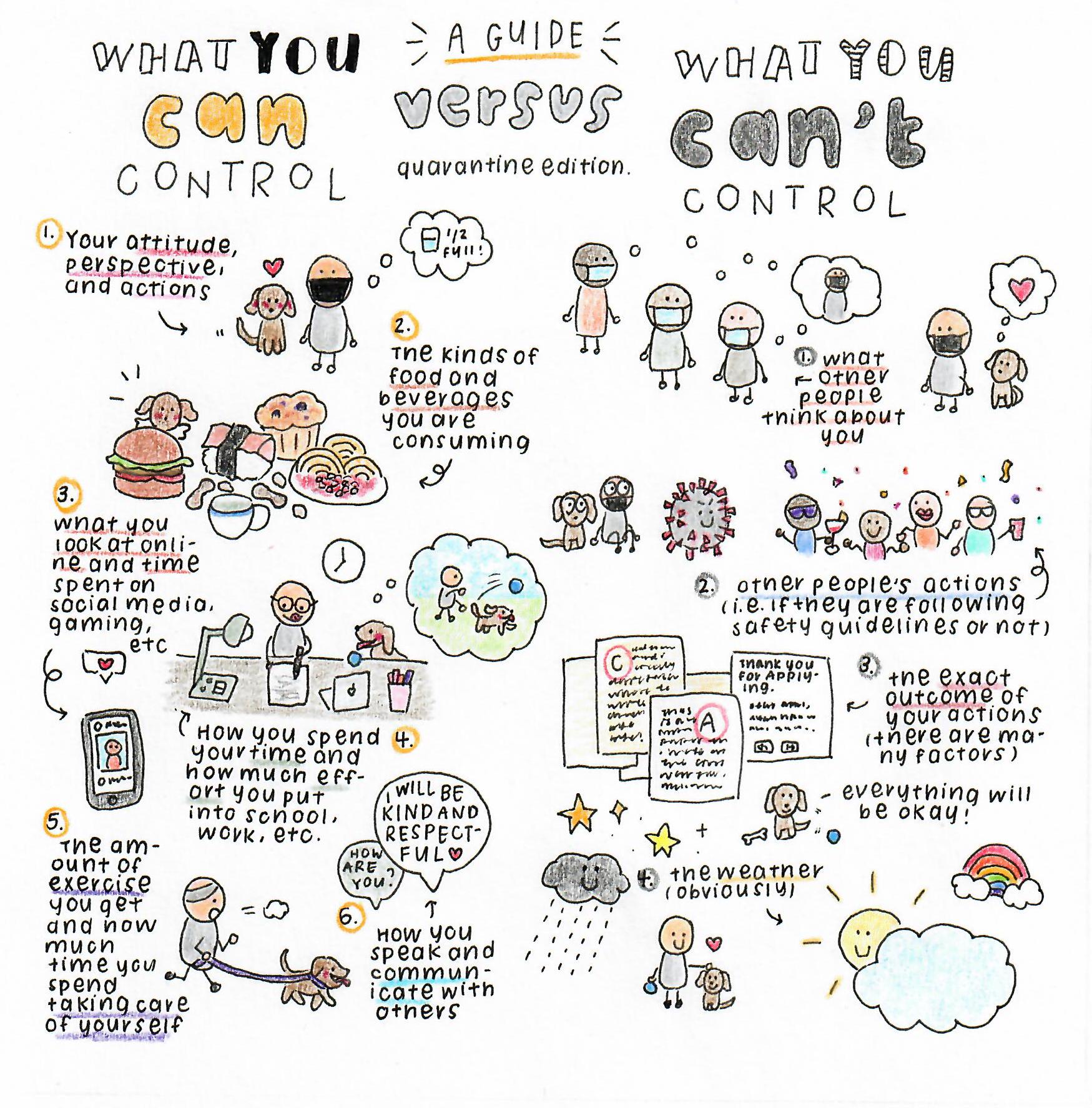
Mastering Control and Creating Your Best Versions
Introduction
In the complex tapestry of life, we encounter myriad situations—some under our influence, others beyond our reach. The ability to discern between these realms, and to act accordingly, forms the cornerstone of personal and professional success. This article explores the profound significance of understanding what is within our control and what is not, offering insights into how this awareness can elevate outcomes in both spheres of life.
Importance of Understanding Control: Understanding what lies within our control empowers us to direct our efforts effectively. It allows us to focus our energy on aspects where we can make a tangible difference, fostering a sense of agency and purpose.
Enhancement of Personal and Professional Outcomes: Clarity on control fosters resilience and adaptability in the face of challenges. It enables individuals to navigate setbacks with grace, capitalize on opportunities, and cultivate meaningful relationships—key ingredients for personal fulfillment and professional advancement.
Intended Audience: This article is crafted for individuals seeking to enhance their mastery over life’s dynamics—whether in personal relationships, career pursuits, or self-development. It is designed to resonate with readers who aspire to cultivate a deeper understanding of control, harness it effectively, and optimize their outcomes in various aspects of life.
Section 1: Understanding Control and Acceptance
1. Defining Control
Differentiating between Internal and External Factors:
Control encompasses both internal factors—such as our thoughts and actions—and external factors—like circumstances and others’ choices. Internal factors are within our direct influence, allowing us to shape our responses and decisions. In contrast, external factors are variables outside our immediate control, requiring acceptance and adaptation.
Importance of Emotional Regulation and Perspective:
Emotional regulation plays a pivotal role in managing our responses to internal and external stimuli. It involves understanding and managing emotions effectively, which enhances decision-making and interpersonal interactions. Perspective, on the other hand, influences how we interpret and respond to situations, shaping our resilience and outlook on life.
2. Acceptance of the Uncontrollable
Identifying Aspects Beyond Personal Influence: Certain aspects of life—such as natural events, others’ behaviors, and broader socio-economic trends—are beyond our direct control. Recognizing these factors allows us to focus our energy on areas where we can make a meaningful impact, fostering a sense of empowerment and purpose.
Benefits of Accepting the Uncontrollable: Acceptance of uncontrollable factors brings clarity and peace of mind. It reduces stress and anxiety associated with trying to change what cannot be changed, freeing up mental and emotional resources for constructive endeavors. Embracing acceptance promotes emotional well-being, resilience, and adaptive coping strategies.

Section 2: Creating Your Best Versions in Controllable Situations
1. Assessing and Improving
Evaluating Areas within Personal Control: Identifying and assessing areas within our personal control is crucial for self-improvement. This includes evaluating habits, attitudes, and behaviors that directly influence our daily interactions and outcomes. By introspecting and seeking feedback from trusted sources, we gain insights into areas where proactive changes can lead to positive growth.
Setting SMART Goals for Improvement and Growth: SMART (Specific, Measurable, Achievable, Relevant, Time-bound) goals provide a structured framework for personal development. Setting clear objectives aligned with our values and aspirations allows us to track progress effectively and stay motivated. Whether aiming to enhance skills, adopt healthier habits, or improve relationships, SMART goals help translate aspirations into actionable steps.
2. Emotional Management
Techniques for Handling Emotions Constructively: Emotional management involves cultivating awareness and regulation of our emotions. Practices such as mindfulness meditation enhance self-awareness and reduce reactivity, enabling us to respond thoughtfully rather than react impulsively. Emotional intelligence, which encompasses understanding, expressing, and managing emotions, equips us with the tools to navigate interpersonal dynamics and challenges effectively.
Channeling Emotions into Productive Actions and Responses: Rather than suppressing or acting impulsively on emotions, channeling them into productive outlets is key to personal growth. Creative pursuits, physical exercise, or constructive communication allow us to express emotions in healthy ways. By transforming emotional energy into positive actions and responses, we foster resilience and maintain constructive relationships.

Section 3: Applying Concepts in Personal and Professional Scenarios
1. Personal Life Applications
Strategies for Enhancing Relationships: Effective communication and empathy form the bedrock of healthy relationships. By actively listening, expressing ourselves clearly, and seeking to understand others’ perspectives, we cultivate trust and mutual respect. Practicing empathy—putting ourselves in others’ shoes—fosters deeper connections and strengthens emotional bonds.
Health and Wellness Practices: Prioritizing health and wellness enhances overall well-being and resilience. Regular exercise not only improves physical fitness but also boosts mood and cognitive function. Balanced nutrition provides essential nutrients for sustained energy and optimal health. By adopting mindful eating habits and incorporating physical activity into daily routines, we promote longevity and vitality.
2. Professional Life Applications
Navigating Workplace Dynamics: Effective leadership and collaboration are essential for thriving in professional environments. As leaders, fostering a supportive work culture, setting clear goals, and providing constructive feedback empowers teams to excel. Collaboration involves leveraging diverse strengths, respecting differing viewpoints, and fostering innovation through collective effort.
Career Management and Transitions: Successful career management entails continuous skills development and strategic networking. Investing in professional growth through workshops, courses, or certifications enhances expertise and adaptability. Networking strategically—building relationships within and beyond one’s industry—opens doors to new opportunities and facilitates career transitions.

Section 4: Training Yourself for Mastery
1. Self-Awareness Development
Reflective Practices for Understanding Personal Responses and Behaviors: Engaging in reflective practices—such as journaling, meditation, or self-assessment exercises—facilitates deeper insight into our thoughts, emotions, and behaviors. Regular reflection allows us to identify patterns, strengths, and areas for improvement. By cultivating self-awareness, we enhance our ability to make informed decisions and navigate challenges effectively.
Importance of Continuous Learning and Adaptation: Embracing a mindset of continuous learning is essential for personal growth and adaptation. Actively seeking new knowledge, acquiring skills, and staying abreast of industry trends fosters agility and resilience in dynamic environments. By remaining open to feedback and experiences, we expand our perspectives and seize opportunities for development.
2. Practical Strategies for Implementation
Techniques for Cultivating Resilience and Adaptability: Resilience—the ability to bounce back from setbacks—and adaptability—the capacity to adjust to change—are critical skills in mastering control. Building resilience involves developing coping mechanisms, maintaining a positive outlook, and learning from adversity. Adaptability entails embracing uncertainty, exploring new approaches, and adjusting strategies based on evolving circumstances.
Seeking Support from Mentors, Coaches, or Peers: Harnessing support networks plays a pivotal role in personal and professional development. Mentors provide guidance, share insights, and offer constructive feedback based on their experience. Coaches facilitate goal setting, accountability, and skill refinement through structured coaching sessions. Peers offer camaraderie, collaboration opportunities, and diverse perspectives, fostering mutual growth and support.
Mastering control and acceptance involves cultivating self-awareness, embracing continuous learning, and applying practical strategies for resilience and adaptability. By integrating these practices into daily life, individuals empower themselves to navigate challenges, achieve personal growth, and excel in both personal and professional endeavors.

Conclusion
In the journey of life, mastering control and acceptance are fundamental skills that empower individuals to navigate challenges, cultivate resilience, and achieve personal fulfillment. By understanding what is within our control—such as our actions, attitudes, and responses—and accepting what is not, we harness our energy more effectively, leading to enhanced well-being and success in both personal and professional realms.
Recap of the Importance of Control and Acceptance:
Understanding the distinction between what we can influence and what we cannot is crucial for maintaining clarity, reducing stress, and fostering constructive decision-making. This awareness enables us to focus our efforts where they matter most, leading to more meaningful outcomes.
Encouragement to Apply Learned Concepts for Growth:
As we conclude, I encourage you to integrate the concepts discussed—self-awareness, emotional management, goal setting, and resilience building—into your daily life. By consistently applying these principles, you will strengthen your ability to adapt to change, build healthier relationships, and achieve your goals with greater purpose and effectiveness.
Final Thoughts on Achieving Fulfillment Through Mastery:
True mastery lies not in controlling external circumstances, but in mastering our responses to them. By embracing challenges as opportunities for growth, cultivating a positive mindset, and nurturing meaningful connections, we pave the way for enduring fulfillment and personal satisfaction.
I invite you to consider supporting the MEDA Foundation in their mission to empower individuals and communities through sustainable economic opportunities. Your participation or donation can make a meaningful difference in creating positive impact and fostering inclusive development.
Further Reading References:
“Emotional Intelligence 2.0” by Travis Bradberry and Jean Greaves – This book offers practical insights into emotional intelligence, including strategies for self-awareness and effective interpersonal relationships.
“Mindset: The New Psychology of Success” by Carol S. Dweck – Explore the concept of growth mindset versus fixed mindset, and how adopting a growth-oriented perspective can lead to personal and professional development.
“The Power of Now: A Guide to Spiritual Enlightenment” by Eckhart Tolle – This book explores mindfulness and living in the present moment, providing practical guidance for reducing stress and enhancing clarity.
“Drive: The Surprising Truth About What Motivates Us” by Daniel H. Pink – Discover insights into intrinsic motivation and how autonomy, mastery, and purpose drive personal and professional success.








